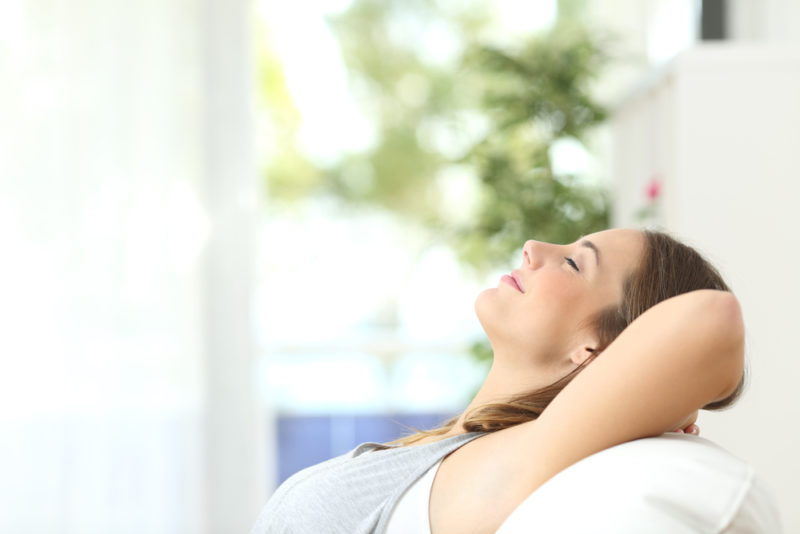Volatile organic chemicals or compounds, also called VOCs, evaporate at room temperature from some solids and liquids, lowering your indoor air quality. This can cause breathing problems, eye or sinus irritation, headaches, or asthma. VOCs can even lead to liver damage, kidney damage, or cancer. Common volatile organic compounds include formaldehyde, acetone, xylene, toluene, and benzene. Particleboard, air fresheners, perfumes, paints, varnishes, cleaners, carpets, and many other household items often contain these chemicals. To reduce harmful VOCs in your Richmond Hill, Georgia, home, use natural products, add ventilation, avoid harmful chemicals, and decorate with houseplants.
Using Natural Products
Instead of buying commercial air fresheners and cleaning products that are full of VOCs, you can save money and keep your family healthier by making your own natural products. Make potpourri from herbs and flowers or simmer cinnamon sticks, orange slices, cloves, or other spices on your stove to give your home a welcoming smell. Natural essential oils are popular as air fresheners as well, but some people are allergic to some of these natural products, so be wary.
You can use lemon juice and olive oil as a healthy wood polish, and a few drops of tea tree oil mixed with water will help you prevent mold and mildew in your bathroom. By cleaning regularly, you can also get rid of VOCs that already contaminate your home’s air and surfaces.
Adding Ventilation
Without enough ventilation, volatile organic compounds accumulate, especially in homes with better insulation. You can get rid of VOCs and let some fresh air into your home by opening a window, using the exhaust fan in your kitchen or bathroom, or having a mechanical ventilator installed. Heat or energy recovery ventilators remove stale indoor air and pull the same amount of fresh air into your home. They save energy by transferring heat from the stale air to the fresh air in winter and cooling the fresh air in summer.
Avoiding VOCs
You should store paint, paint thinners, pesticides, particle board, fuel, cleaners, and similar materials in a detached shed or garage to protect your family from VOCs. Use it to store gas-powered tools like mowers, leaf blowers, and chainsaws as well. Since there’s no way to avoid these harmful VOCs completely, have an exhaust fan installed in your storage space to reduce the hazard.
Also, don’t store large amounts of materials that contain harmful chemicals and keep them away from children and pets. You should also throw away old plastic packaging, containers, and leftover paint, pesticides, and other chemicals immediately. Your local waste management department can tell you where to get rid of these materials safely. Remember, if you can smell a chemical odor in your air, you have lots of VOCs in your home.
Decorating With Houseplants
Decorating with houseplants is an easy, inexpensive way to make your home look fashionable and welcoming. Best of all, many houseplants absorb volatile organic compounds and other toxins. You should keep a mix of several types of plants in different rooms for the healthiest air. If you keep all your plants in one room, you could increase the humidity in the area and encourage mold growth. Mold can damage your home and make asthma and allergy symptoms worse.
Some of the best plants for cleaning your air are aloe, spider plants, chrysanthemums, Chinese evergreens, and peace lilies. Aloe or aloe vera can get rid of formaldehyde and benzene, and the gel inside the plant is great for dry skin, cuts, and burns. Chrysanthemums or mums have big, beautiful blooms in a variety of colors, and they filter out benzene. Spider plants, Chinese evergreens, and peace lilies can all fight several common VOCs, and they’re easy to take care of even if you’re not a skilled gardener.
Byrd Heating and Air Conditioning is a Factory Authorized Carrier Dealer with over 25 years of experience. We can help you install, maintain, and repair a variety of devices to improve your indoor air quality, as well as other heating and cooling products. Call us anytime at 912-373-8447 for expert service.
Image provided by Shutterstock

